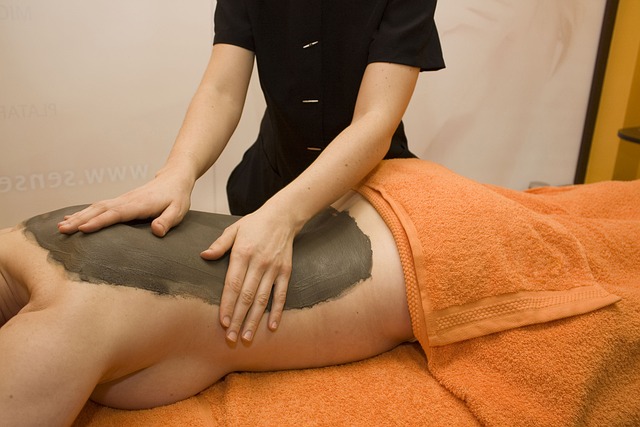The parasympathetic nervous system (PNS), or "rest and digest" system, is activated by cold water immersion like cold plunges, counteracting the "fight or flight" response. Regular cold therapy reduces stress, anxiety, and improves mood through enhanced PNS activity. Short cold exposures or daily showers can significantly decrease stress and anxiety while promoting mental well-being, with safety precautions including gradual progression and staying hydrated.
Cold water immersion has emerged as a powerful tool for promoting relaxation and reducing stress. This ancient practice involves submerging oneself in cold water, which triggers a remarkable response within the body. By diving into this therapeutic experience, you activate the parasympathetic nervous system—a key player in the body’s natural ‘rest and digest’ mode. In this article, we explore the science behind cold water immersion, its profound effects on mental health and anxiety, and practical tips to incorporate this effective stress reliever into your routine. Discover how a simple cold plunge can unlock calming effects for optimal well-being.
Understanding the Parasympathetic Nervous System and Its Role in Stress Relief
The parasympathetic nervous system (PNS) is a key player in our body’s natural relaxation response, often described as the ‘rest and digest’ system. It works in opposition to the sympathetic nervous system, which triggers the ‘fight or flight’ response during stressful situations. When activated, the PNS helps to slow heart rate, reduce blood pressure, and promote overall calmness and relaxation.
Cold water immersion, such as a cold plunge, has been shown to stimulate this calming effect by signaling the brain to activate the PNS. The sudden exposure to cold water prompts the body to release certain hormones and neurotransmitters, including norepinephrine and cortisol, which play a role in stress response regulation. By engaging in regular cold water therapy, whether it’s a quick cold shower or an extended cold plunge, individuals can experience long-term benefits for mental health, including reduced stress, anxiety, and improved mood through the enhanced activity of the parasympathetic nervous system.
The Science Behind Cold Water Immersion and Activation of the Parasympathetic System
The science behind cold water immersion and its impact on the human body is a fascinating area of study, especially when it comes to mental health and stress management. Cold water therapy, such as a cold plunge or immersion in icy water, has gained attention for its potential to activate the parasympathetic nervous system, often referred to as the “rest and digest” system. This process involves the vagus nerve, which plays a key role in regulating heart rate, digestion, and overall relaxation. When you subject your body to cold water, it triggers a series of physiological responses, including vasoconstriction (narrowing of blood vessels) and a subsequent increase in heart rate followed by a decrease as the body adjusts to the temperature change. This response leads to the activation of the parasympathetic system, promoting feelings of calm and relaxation.
The calming effects of cold plunges are well documented, with many studies suggesting that cold water exposure can significantly reduce stress and anxiety levels. This therapy has been shown to decrease cortisol (the stress hormone) and increase serotonin, a neurotransmitter associated with improved mood and well-being. For individuals seeking natural ways to manage mental health issues, cold water immersion presents an accessible and potentially powerful tool. By stimulating the parasympathetic system, these practices offer a holistic approach to stress relief, providing both short-term calming effects and long-lasting benefits for overall mental resilience.
Benefits of Cold Plunges for Mental Health and Anxiety Reduction
Cold plunges, or immersing oneself in cold water, have gained popularity as a powerful tool for enhancing mental well-being and managing stress and anxiety. The practice involves briefly exposing your body to extremely cold temperatures, typically through a quick dip in a cold body of water like an ice bath or a cold lake. This jolt of cold shock triggers a physiological response that offers numerous advantages for mental health.
The calming effects of cold plunges are well-documented. When you immerse yourself in cold water, it activates the parasympathetic nervous system, promoting relaxation and reducing stress levels. This activation counteracts the ‘fight or flight’ response, which is often heightened during times of anxiety. By inducing a state of calm, cold water therapy for mental health can be an effective strategy to alleviate symptoms of stress and anxiety. Benefits of cold plunges for stress relief include improved mood, reduced muscle tension, and increased mental clarity. The sudden cold exposure also stimulates the release of endorphins, often referred to as ‘feel-good’ hormones, contributing to a sense of well-being and relaxation.
Practical Tips and Precautions for Incorporating Cold Water Therapy into Your Routine
Incorporating cold water therapy into your routine can offer a powerful tool for managing stress and anxiety, as well as enhancing mental health overall. A cold plunge or immersion in cold water activates the parasympathetic nervous system, promoting relaxation and reducing symptoms of anxiety. To harness these benefits, consider starting with brief exposures – around 10-15 seconds – to colder than usual water temperatures, gradually increasing duration as you build tolerance.
For optimal results, aim for regular practice. This could be a daily cold shower or weekly cold plunge sessions. Ensure proper safety precautions, especially if trying a full-body immersion. Always enter cold water slowly, stay hydrated before and after, and listen to your body, exiting at the first sign of discomfort. Consult with a healthcare provider prior to starting any new wellness routine, particularly if you have underlying health conditions or concerns.
Cold water immersion offers a simple yet powerful tool for managing stress and anxiety. By activating the parasympathetic nervous system, this practice induces a state of profound relaxation, helping to reduce stress hormones and calm the mind. Incorporating regular cold plunges into your routine can be an accessible and effective way to enhance mental well-being and cultivate a deeper sense of tranquility. Whether for quick stress relief or as part of a holistic wellness regimen, the benefits of cold water therapy are well worth exploring.
